MTT, New World Symphony wrap season with a world premiere, rare concerto and Berlioz classic

Yuja Wang performed Prokofiev’s Piano Concerto No. 5 with Michael Tilson Thomas and the New World Symphony Friday night in Miami Beach. Photo: Kirk Edwards
The New World Symphony will head to Carnegie Hall next week, capping its season with a pair of performances at the nation’s most famous concert hall.
The orchestra’s final program of its Miami Beach season this weekend served as a preview of one of its Carnegie programs Friday night: New World performed an intriguing new work, a cantankerous and deservedly neglected 20th-century concerto, and an orchestral classic that represented the artistic cutting edge on its 1830 premiere.
The concert, led by New World’s founder and artistic director Michael Tilson Thomas, opened with the world premiere of Fountain of Youth by Julia Wolfe. Co-founder of New York’s Bang on a Can music collective, the American composer holds both a Pulitzer Prize and a MacArthur “Genius Grant.”
The composer, whose work was co-commissioned by New World, described her new work as inspired by New World’s young musicians, by the orchestra’s still-youthful 74-year-old founder and by the Fountain of Youth supposedly sought in Florida by Spanish explorers.
The work opens with some of the densest music most people are ever likely to hear—a granular sound undergirded by crunchy tremolos in the lower strings. Ascending, striving figures in the violins are answered by gloomy, downward phrases in the brass. The opening creates a dark and serious mood of anticipation.
A long crescendo, with repeated figures in the minimalist manner, leads to a burst of exuberant sound, as the long-restrained orchestra comes to life to a pop beat aided by a drum set. The gloom returns, giving way again to the buoyant, energetic music. On first hearing, the dour, brooding passages felt more compelling than the ones of presumably youthful vitality.
Prokofiev’s Piano Concerto No. 5 is one of the least-performed of the composer’s concertos, and it’s not hard to see why. It has the frenetic tone often heard in Soviet music, with a pounding, hammering style that sounds as if it were composed to accompany the activities of a heavy equipment factory. The only relief from the percussive racket comes in the slow movement, although even here Prokofiev’s incomparable melodic gift seems to have taken a siesta.
Handling the solo part was the superstar Chinese pianist Yuja Wang, known equally for the flamboyance of her playing and concert garb. Wearing a long yellow gown and high heels so treacherous that she tottered unsteadily onto the stage, Wang played in a characteristically virtuoso manner that appeared designed to highlight the work’s few contrasts.
She played in a deliberate, mechanical style in the opening Allegro con brio, hitting the notes in an almost sarcastically machine-line way. But then she would perform with astonishing, liquid fluency in runs and ghostly figures that accompanied melodies in the orchestra. The orchestra handled its quirky part effectively, with winds and brass emerging for scraps of eccentric melody. In the third movement, strings played nervous figures as Wang’s hands raced up and down the keyboard.
The only relief from the mechanistic, hammering style came in the Larghetto, one of those luminous Prokofiev slow movements. Wang played liquid runs and figures on the keyboard to accompany a pensive melody in winds. In a grand and sweeping manner, she played an unaccompanied, cadenza-like passage, leading to a climax with soaring melodies in the strings. With the last movement, it was back to the factory, as Wang tossed off rapid, dissonant figures that sounded like breaking glass, against twitchy figures in the strings.
For the second half, Tilson Thomas conducted without a score to lead the orchestra in Berlioz’s Symphonie fantastique, the composer’s groundbreaking portrayal of romantic obsession that skids off into nightmare. This was a large-scale, spacious performance that brought out the weird orchestral effects and emotional turmoil at the heart of the work without stretching the music beyond its early Romantic origins.
In the first movement (“Reveries-Passions”), the orchestra produced tones of great depth and richness, with searing clarity in violins in the upper reaches and vividly phrased melodies in winds and brass. There was a yearning, forward-leaning feel to the movement. The idée fixe melody, which represents the composer’s beloved, was given an elusive, sensual performance, bringing out the shyness and beauty the composer saw in her.
In the Ball movement, where the composer tries to forget his beloved, strings performed the waltz theme in a restrained, almost classical style, sounding not particularly festive, probably appropriately, since the hero’s obsession kept breaking through in the form of the idée fixe melody.
The early restraint allowed lots of room for Tilson Thomas to lead the orchestra through an abrupt burst of energy as the movement came to a frenzied conclusion.
The country scene was characterized by outstanding playing from the orchestra’s oboe and English horn, bucolic and dreamy. In the famous March to the Scaffold, where the composer imagines in an opium dream that he’s being executed for murdering his beloved, the orchestra performed in a menacing manner, with sinister bassoon tones in the instrument’s upper range and swaggering brass.
The concluding Witches’ Sabbath was eerie, resonant with squeaking insinuations of rats and bats, and a stark and solemn Dies Irae that the orchestra turned into a grotesque parody.
As an encore, the orchestra brought verve, transparency and especially noble brass playing to Wagner’s Prelude to Act 3 of Lohengrin.
Michael Tilson Thomas will lead the New World Symphony, with soloist Yuja Wang, in the same program 8 p.m. Saturday at New World Center in Miami Beach. nws.edu; 305-673-3331.
The program will be repeated Wednesday at Carnegie Hall in New York. The New York performance will be streamed at Medici.tv.
Posted in Performances
2 Responses to “MTT, New World Symphony wrap season with a world premiere, rare concerto and Berlioz classic”
Leave a Comment
Sat Apr 27, 2019
at 12:27 pm
2 Comments
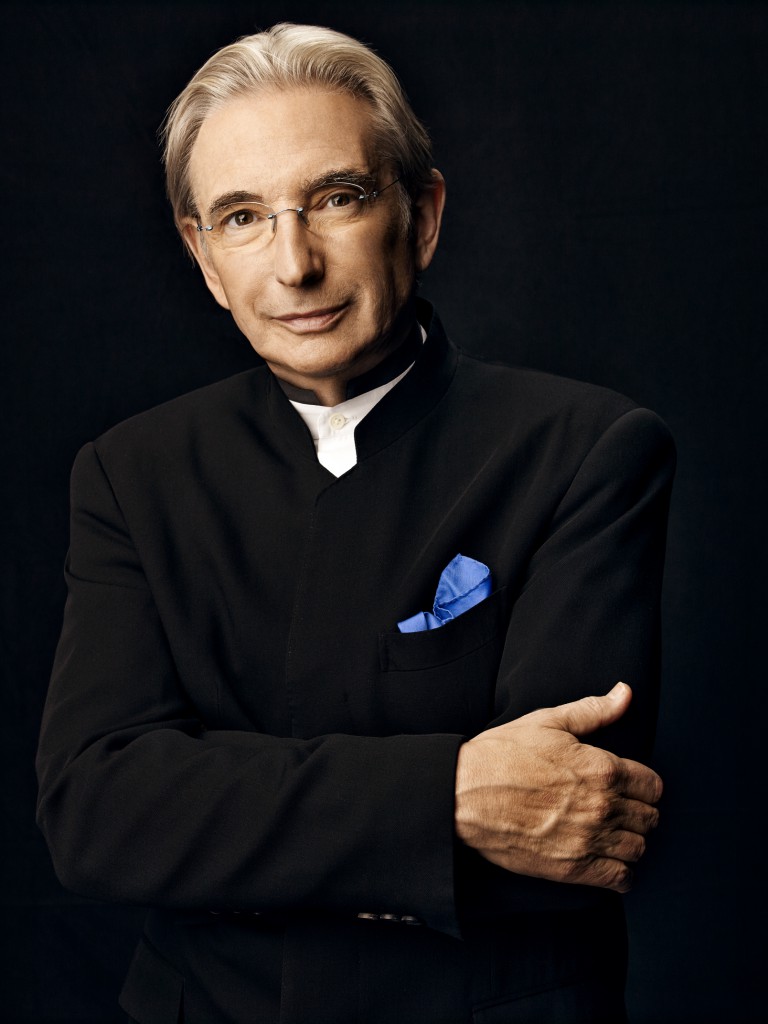
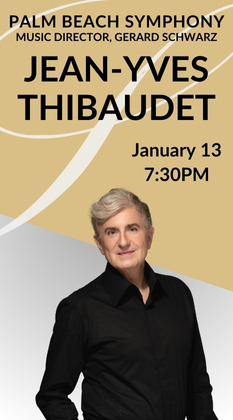

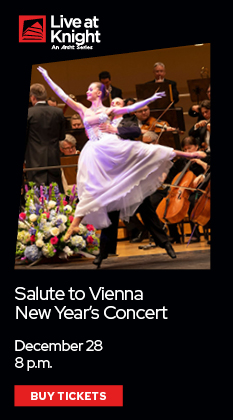
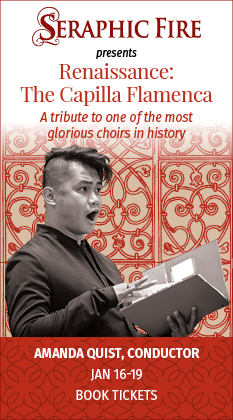
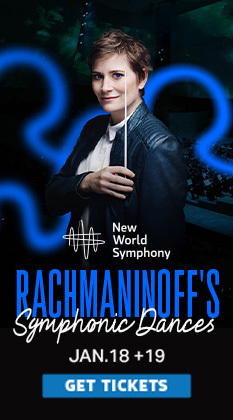
Posted May 03, 2019 at 1:56 pm by Mario
Wonderful season finale, though this was the same piece(Prokofiev’s Piano Concerto #5) that Wang performed last year with the New World Symphony. Don’t know why the chose the same piece two years in a row?
Posted May 09, 2019 at 9:59 pm by Andrew
What about Yuja’s disappointing encore?